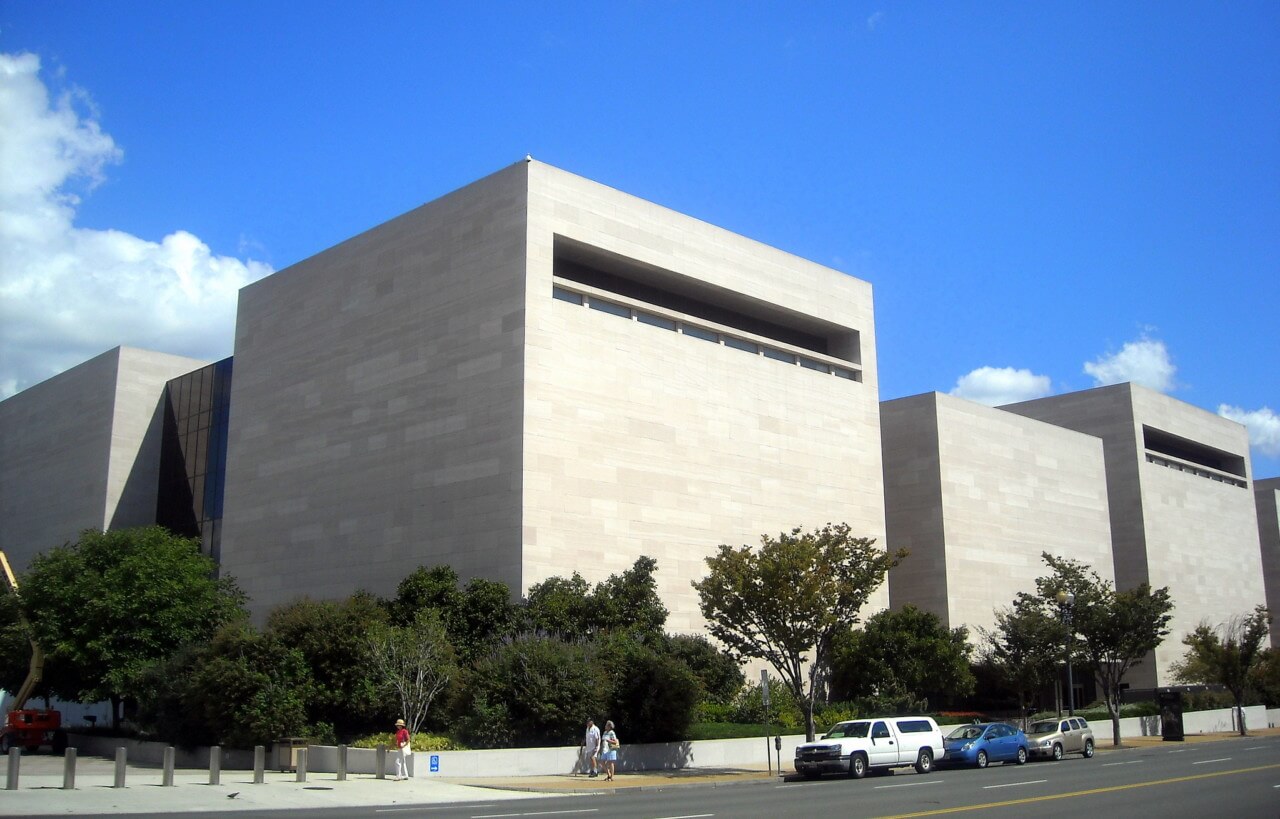Just days before billionaire Jeff Bezos is due to be blasted into the cosmos (or close to it) aboard a suborbital space vehicle with an all-civilian crew, the Amazon founder and former CEO again emphasized his passion for all things astronautic with a $200 million donation to the Smithsonian Institution. The money will solely be used to revamp the National Air and Space Museum in Washington, D.C.
Specifically, $70 million will go toward helping to help fund the roughly $1 billion renovation project led by Quinn Evans Architects that has been underway at the 45-old-old museum since 2018. The remaining $130 million will be used to create a new education center on the eastern side of the museum’s National Mall-flanking campus that, per the Smithsonian, will “feature programs and activities that inspire students to pursue innovation and explore careers in STEAM fields, and […] help teachers better utilize the Smithsonian’s collections.” The future facility, which will be built in conjunction with the second phase of the ongoing HOK–designed makeover, already has a name: The Bezos Learning Center.
The donation from Bezos, who founded the Kent, Washington-based aerospace manufacturer and space flight company Blue Origin in 2000, is the largest in Smithsonian history other than British scientist James Smithson’s (posthumous) $500,000 act of largesse that led to the formal establishment of the institution as a public trust in 1846.
“Almost 175 years ago, Mr. Smithson’s inaugural gift laid the groundwork for this innovative approach, bringing together private philanthropy and public funding,” said Smithsonian Secretary Lonnie Bunch in a statement. “Today, as we emerge from a pivotal moment in history, Jeff’s donation builds on that original tradition and will help us reimagine and transform the Smithsonian. This historic gift will help the Smithsonian achieve its goal of reaching every classroom in America by creating a world-class learning center with access and inspiration at its heart.”
As of 2019, The National Air and Space Museum, in addition to being among the most popular Smithsonian-operated museums and the largest and most-visited aerospace museum in the world, is the fifth most-visited museum of any kind in the United States. It trails only the Metropolitan Museum of Art and American Museum of Natural History, both in New York; the Smithsonian’s National Museum of Natural History, and the National Gallery of Art, a non-Smithsonian museum also located in Washington, D.C.
The National Air and Space Museum is only one of a small handful of Smithsonian-operated facilities that have yet to reopen after being shuttered in March 2020 during the early months of the coronavirus pandemic. The planned July 30 reopening isn’t far off although, as pointed out by the Washington Post, 60 percent of the exhibition space will remain off-limits to the public due to the ongoing renovation work.
While the National Air and Space Museum-earmarked gift is a record-breaking one for the Smithsonian in terms of size, it’s not the first time that Bezos has reached into his deep, deep, pockets to support the organization: He was founding donor to the National Museum of African American History and Culture and has previously contributed to the National Air and Space Museum. In 2016, Bezos was bestowed with a Smithsonian American Ingenuity Award for Technology. The following year, his portrait was commissioned by the National Portrait Gallery.
“The Smithsonian plays a vital role in igniting the imaginations of our future builders and dreamers,” said Bezos. “Every child is born with great potential, and it’s inspiration that unlocks that potential. My love affair with science, invention and space did that for me, and I hope this gift does that for others.”
Major museum gifts aside, Bezos has been garnering headlines as of late for his upcoming voyage aboard Blue Origin’s Good Shepard, a fully autonomous rocket-capsule combo that is slated to launch from a site in West Texas on July 20. Joining Bezos for the 11-minute excursion to the edge of space will be an 82-year-old, an 18-year-old, and his brother, Mark Bezos. While nothing can drum up genuine public excitement quite like space travel (or near-space travel) especially when civilians and the prospect of space tourism are involved, Bezos and his fellow ultra-rich outer space obsessives Richard Branson (Virgin Galactic) and Elon Musk (SpaceX) have also been the subject of withering criticism for being fixated on the heavens when things aren’t going so well back on Earth.
